Expert Disaster Preppers Explain How to Ride Out the Coronavirus Pandemic
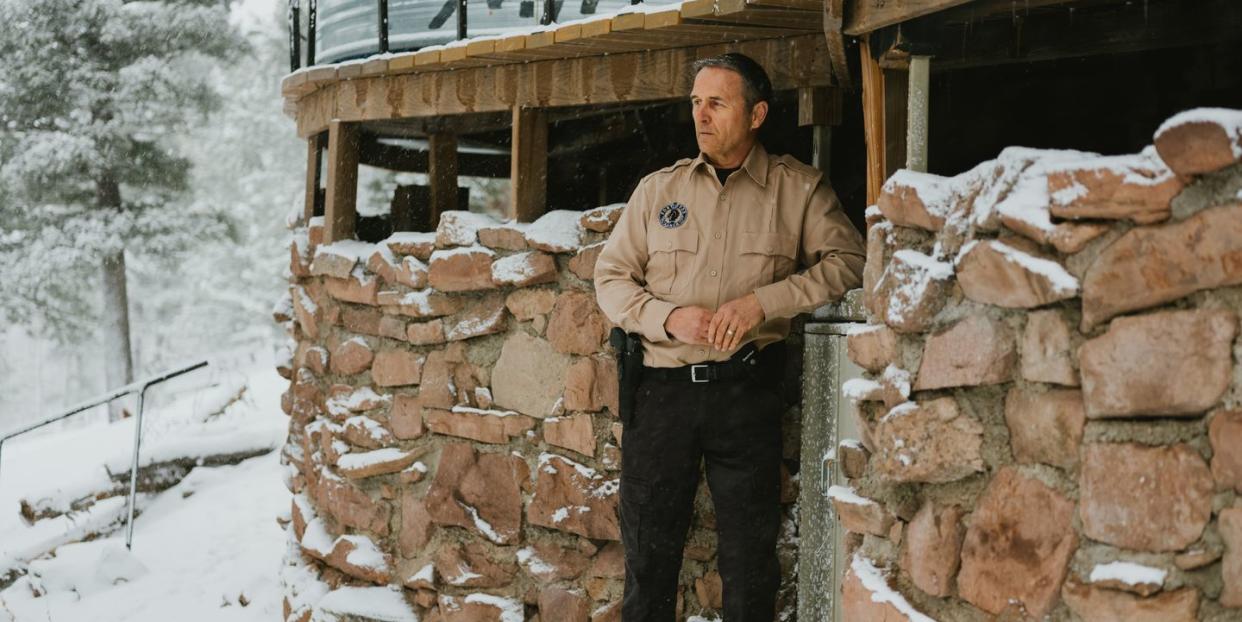
Long lines outside grocery stores. Aisles stripped of canned food, toilet paper, and hand sanitizer. A fast-moving pandemic disease that, as of last week, was infecting more than 30,000 people every day.
Just a month ago, such a situation was unimaginable for most of us. But for disaster preppers, it’s precisely the scenario they’re determined to be ready for.
“I’m from a very old Appalachian family. Even before the word ‘prepper’ was a term, we were always putting back stuff and being ready in case we couldn’t go to the store,” says Samantha Biggers, who hardly fits the stereotype seen in TV shows like Doomsday Preppers. Biggers is a tattooed, 36-year-old farmer in North Carolina who brews her own beer and shears her own sheep. That’s a far cry from a wild-eyed paramilitary man living off-grid in a bunker designed to weather an EMP blast.
In a world where most of us take a safety net for granted, the idea that we might have to be ready for the worst is a reality-distorting, anxiety-inducing mental exercise. And it’s become all too real as the novel coronavirus spreads worldwide and we are suddenly forced to confront the reality of being locked down with limited access to food, medicine, and supplies.
For guidance in this time of uncertainty, we spoke with five expert preppers about what they’re doing to ride out the pandemic, how they’ll be ready for whatever comes next—and how you can be too.
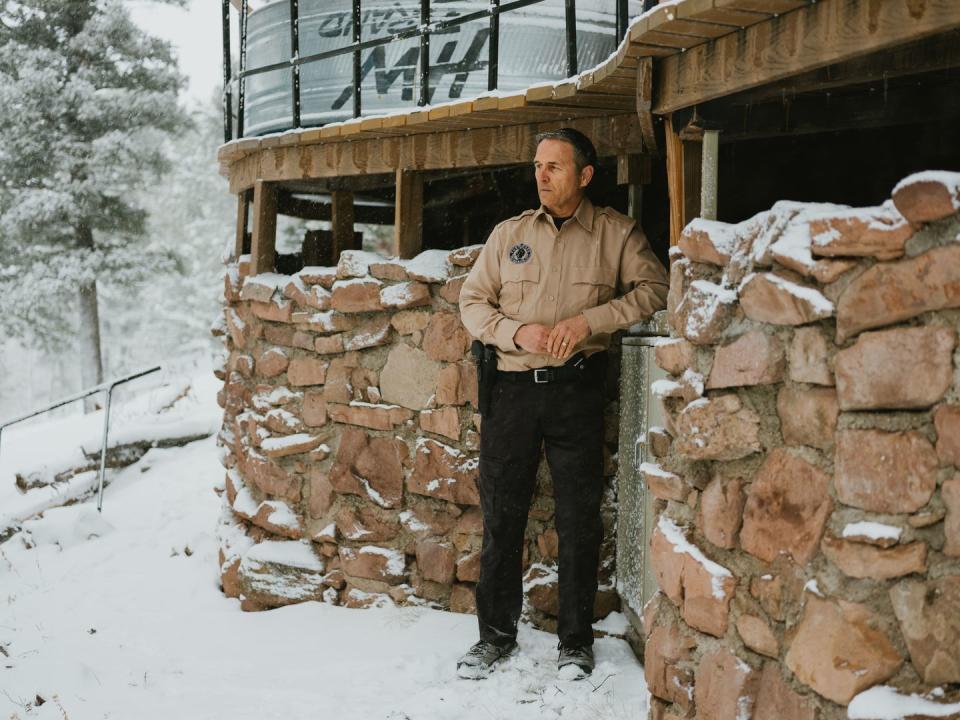
DREW MILLER, 62, is a retired Air Force Reserve Colonel and the founder of Fortitude Ranch, a survivalist community with locations in Colorado and West Virginia. Members pay for access to a secluded forest location equipped with essentials to weather a serious disaster event.
Since I was an intelligence officer in the Air Force, I’m aware of all the threats out there that most people don’t pay any attention to, so I’ve been a prepper for a long time.
About 10 years ago, I realized if it’s a really bad situation, with economies not functioning, a loss of law and order, people out looting and marauding, and stealing for food, then making it on your own is probably not going to be very successful. Working with some prepper experts, we formed Fortitude Ranch. We’re a survival community, but we’re professionally run. We have staff, we have a country-club-style membership. You can come on vacation and have a good time, but in bad times you come out and we keep our members alive. By having a lot of people, you can have a lot of guards, and we share expenses, so it’s more affordable.
COVID-19 is kind of a wake-up call. It shows you what a pandemic can do in terms of transmission. It’s not going to show you what it can do in terms of killing because the lethality rate is low.
Even so, with this mildly bad virus, hospitals are due to be overwhelmed, especially in big cities. So when a really bad virus does hit, we will be overwhelmed, and the biggest casualties are going to be first-responders. That’s why, in a collapse situation, you need to have a safe, rural location where you can go to survive.
How do you survive a collapse? You have to have food, water, energy, electricity. And you got to be able to keep people separated with their own air supply, in case there’s a virus that’s going around. That’s why we’re not like the typical thing that people envision when they think of preppers. We’re not deep underground, and we keep people separated for virus protection. We have lots of buildings.
Now I don’t think COVID-19 is going to lead to collapse. We’re going to have law and order. I don’t think people need to be freaking out. With COVID-19, you don’t need toilet paper stacking up. What you do need to have is just some food so you can take a lockdown for up to 30 days. Just some normal food, nothing really special.
I’m hoping this will serve as a wake-up call, and I hate to call it a good event because it is killing some people, especially the elderly. But COVID-19 could end up being a positive force if it wakes people up to the fact that we now live in an age of pandemics. It’s not a very deadly one, but it shows how fast it can spread, how you can’t stop it. You’ve got to be preparing for far worse than this one.

Drew’s Tips
Focus on yourself and your loved ones first. The first rule of prepping is: Don’t tell anyone you’re a prepper. You could have a coworker that has a big supply of food... they don’t want you banging on their door saying “Hey, I need canned food. Can you help us?”
Stick to shelf-stable foods. In a collapse situation, frozen is not a good idea because you have to assume you're not going to have an electric system. We do shelf-stable foods, but we also grow food, we have gardening, we have plants, we have free-range chickens, we have cattle. We also will do a lot of hunting, more so than would be allowed legally, but in a collapse situation, who cares?
Don’t be complacent. I don’t think people need to be freaking out for COVID-19. But hopefully we’ll wake to the fact that you can’t stop pandemics; if there’s a highly contagious virus, it’s gonna spread, so you gotta be able to deal with the aftermath.
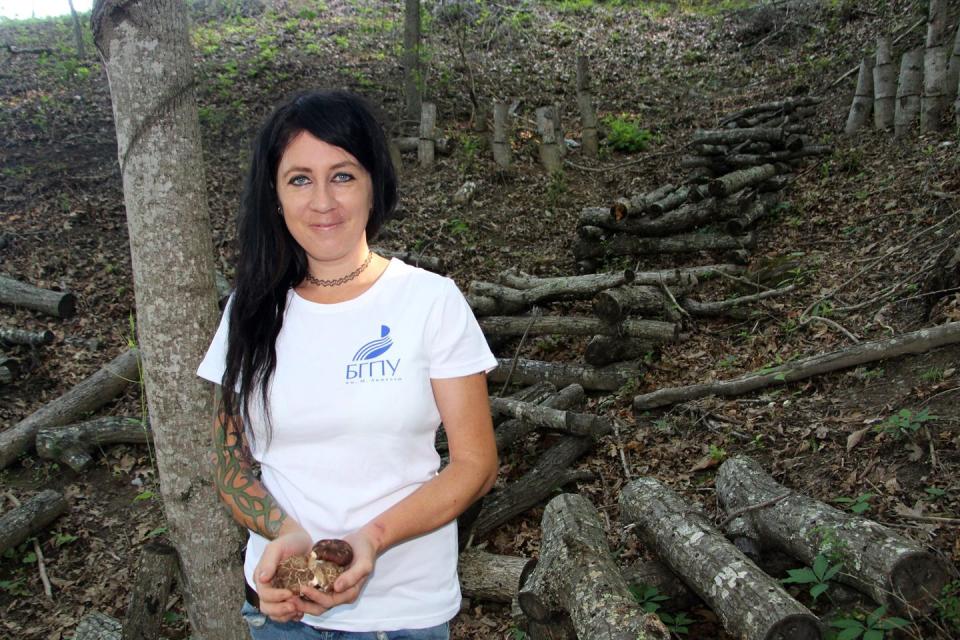
SAMANTHA BIGGERS, 36, is the editor-in-chief of Backdoor Survival, a survivalist website that offers tips and guides on food, water, medicine, and other prepping supplies.
My parents are from North Carolina, but I grew up in western Washington. My dad was a Vietnam vet, and he didn’t really trust anybody to take care of him. We always just were taught, in my household, to have some extra put back.
I was raised by my dad who was a single father, and we decided to move to North Carolina when I was 16 because he had property here, which is now mine. My husband and I built our house on the side of the mountain here, a quarter mile up the road from my dad’s place. We have 1,600 grapevines, a sheep herd, and dogs and cats. We’re only four miles outside of town, but we’ve actually not been to a grocery store since January 31.
We started seeing what was coming out of China, and I was like, ‘This is bad.’ My dad has a lot of complications from the war, and I can’t risk his health. We started thinking ‘What if we have to stay here for months?’
We started buying a lot of stuff in the mail over six weeks, and just stayed at home. We bought flour; we’re making our own pasta, we’re making our own bread. We’re making our own beer. I haven’t had store-bought beer in 50 days maybe.
There’s a lot of food out there still, I know it seems short when people see those blank grocery store shelves, but that’s just because people are buying things up faster than the trucks can deliver them. There’s a lot of food in this country, there is not a shortage of food.
I’ve found that people are rushing to the grocery stores and putting themselves at risk of exposure when they can order things online. Sometimes it will take a while, but you can have them delivered directly to your house, and not go out in those crowds.
We quarantine and sanitize the packages. I’ve been using bleach on the outside of the package. Then let it sit. It’s a real hassle, but it’s what you got to do.
Samantha’s Tips
Have a back-up for cooking. We bought a toaster oven. I really don’t think the power’s going to go out, but... [cooking gas] may run out at some point. So we got some electrical appliances to supplement.
Figure out what you lack. Before you buy groceries, first see what you’ve got, then think about what you’re lacking. Look for high-calorie foods. We also went through our medical supplies and got things that treat the respiratory symptoms of COVID-19, things like Mucinex.
Choose a filtration system over bottled water. If you get a boil-water advisory, you can filter that water and store it in jugs and you’ve got plenty of water. Sometimes you see people buying water, but you can’t put back enough bottled water to last a very long time.
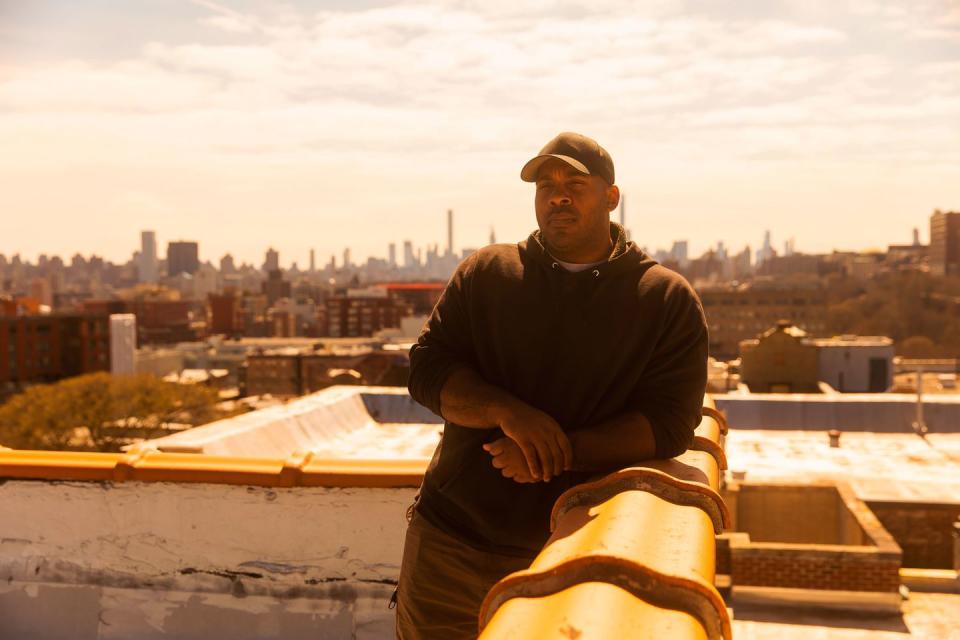
JASON CHARLES, 42, is the organizer of the New York City Prepper’s Network, an emergency preparedness group. A resident of Manhattan, he is also a full-time firefighter with the New York City Fire Department.
It started in 2010 or 2011, I read this book called One Second After [the 2009 science-fiction thriller by William R. Forstchen imagines an America ravaged by an electromagnetic-pulse attack].
And I said, you know what? I don’t want to be that guy that dies, so I started prepping. I was just buying the basic stuff that all prepper sites tell you to buy: food, water, extra medical supplies. I went on this blitz. We have an apartment, and we dedicate a closet to it. I call it the “End of the World” closet. At first my wife wasn’t hip to it. But when I started telling her all the shit that can actually happen, she said, “OK, you can take the closet and do what you want.”
Now, I noticed COVID-19 in December. I thought it was strange that the news was reporting an illness that only affected maybe 25 people. But the fact that they made it a point, it was like, all right, now it’s on my radar. It’s funny, before it was on my radar, I had this stupid sense. I looked at my canned goods and said it’s time to cycle this shit out and get more stuff. We just started buying extra canned goods every time we went out. Right now I have probably about a year or so worth of stuff.
And now coronavirus is here. When you have something that was that serious and China is telling you about it, the next move should’ve been for everyone to lock it down. Italy should have locked it down. Germany should’ve locked it down. We should’ve locked it down. Now look where we are.
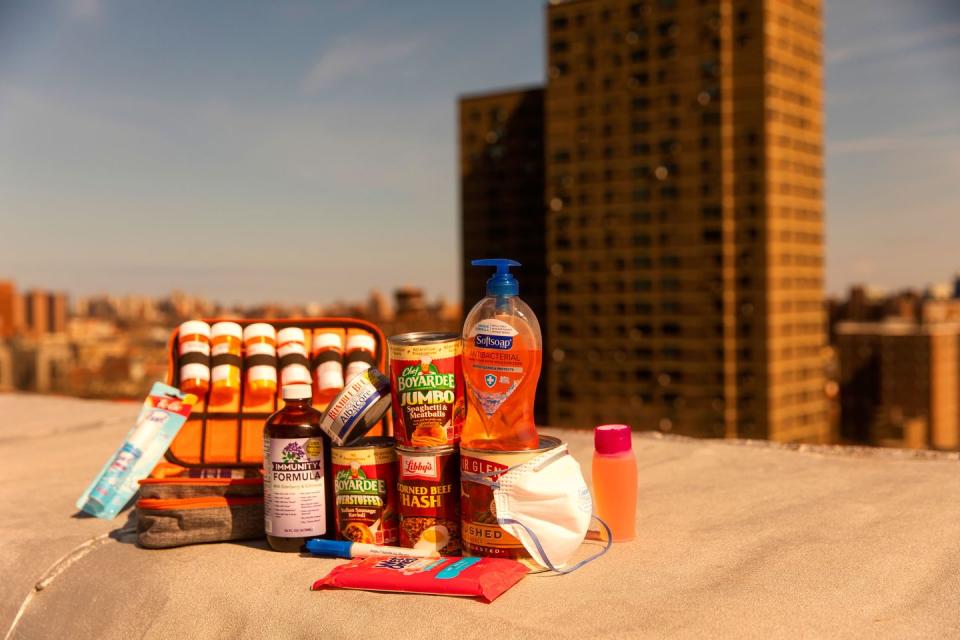
People should be paying attention. Don’t think that you’re not going to get hurt in this process. People are going to get sick. This thing that we have going on, it’s going to be long-term, it’s going to get a lot worse, and it’s going to hurt.
But I tell people: Don’t panic. This is not the end of the world, this is not the endgame. This isn’t the virus that wipes us out, right?

Jason’s Tips
Use common sense. If it’s dangerous, if it seems wrong, don’t do it. Like if you have to go outside during lockdown—for example, if you have to walk the dog. If the military stops by and asks you what you’re doing, don’t fight them, don’t argue with them.
Replenish canned goods frequently. Get as much as you can. Every time you go out, just get more canned goods.
Do business during the day. You’re less likely to run into problems with criminal elements. As police get sick or exposed to the virus, there will be less police on the streets.
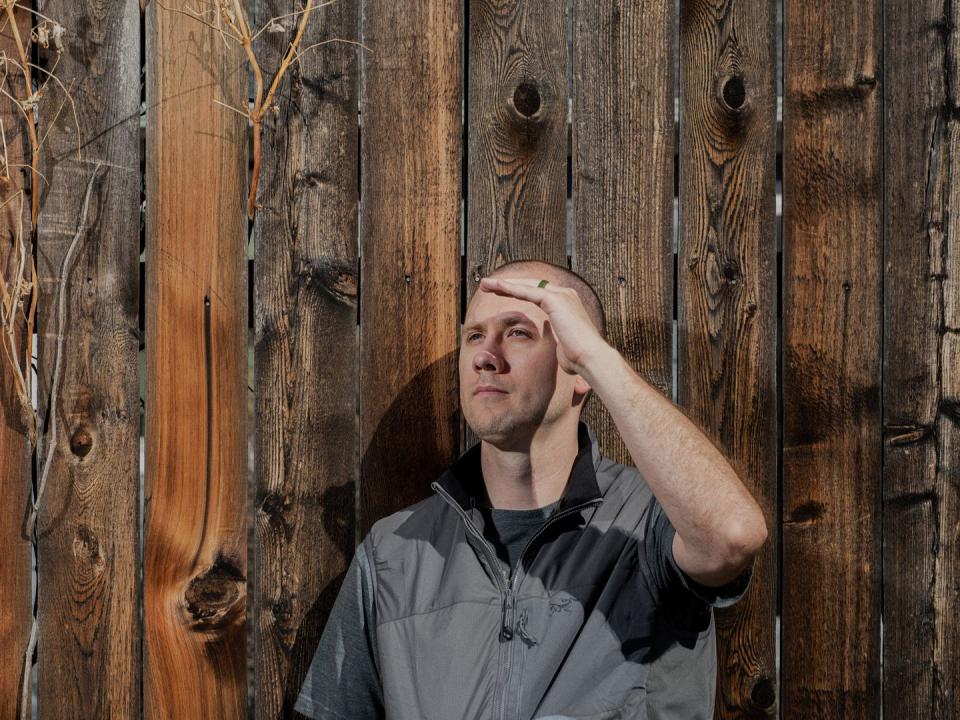
JOHN RAMEY, 34, is the founder and editor-in-chief of The Prepared, a collection of how-to guides for novice to expert preppers. From 2015 to 2016, Ramey served as an Innovation Advisor in President Barack Obama’s administration.
If you think back 10 years ago, most of the public stigma and websites and YouTube channels that presented themselves as related to emergency preparedness were pretty extremist.
I’ve been a prepper my entire adult life, but I’ve always been a sane prepper. A modern prepper. And a closeted prepper, because it felt like I had to be. And I started “The Prepared” for that reason. I came to understand that there were millions of other people who are rational and wanted to take emergency preparedness seriously.
We were very early in our coverage of COVID-19. We started on January 10. On February 3, we released our official prediction models of basically what is now happening. And February 20 is when we formally told our audience that containment had failed and they need to expect basically everything that’s happening now.
But even before this COVID thing, preparedness had gone mainstream. People are recognizing that our modern life means we’ve forgotten things that our grandparents used to call normal life: how to navigate without GPS, what to do if you break a bone, how to start a fire. People have started to realize that we’ve lost a hundred-thousand-years’ worth of human skills in the last hundred. More and more rational people are understanding that self-reliance, community resilience, taking care of yourself, being your own first-responder is just part of being a modern adult.
Most of my career has been as a Silicon Valley tech founder, and I was one of the first preppers in the Silicon Valley community. If you think about Silicon Valley not as a bunch of coders, but as a bunch of problem-solvers, that’s really the skillset of Silicon Valley. It’s understanding big complex problems, having a crystal ball to see what the future might look like, and understanding how to solve those problems. That same skillset is what leads a lot of Silicon Valley people to be preppers because then they look at things like climate change, and they understand just how big and hairy that problem is, and they understand just how ineffective we are at solving it.

I’ve also been involved with government and government policy both in this country and in other countries. And through that work, I have seen a few things. Like, this response to coronavirus: how disorganized and ineffective the government response was in the first weeks doesn’t shock me in the least. All of those experiences continued to build this mindset of: Bad things can happen. Bad things do happen.
John’s Tips
Stay home. Everyone’s goal should be to not get or spread the disease. Ideally, you don’t leave your home, you don’t do anything other than go into turtle mode. The main goal is: Can you shelter in your home without going out into the world and spreading and catching the disease for at least a month?
Minimize contact. If you’re unprepared and you have to leave your home, you want to reduce your risk of catching and spreading the disease. Minimize the number of trips, try to buy more things at once without being a crazy panic-hoarder, and practice all the normal safety steps when going out: social distancing, coughing into your elbow, wear gloves, respirator, face protection if you have them. If you’re an at-risk person over the age of 60 or have some kind of underlying condition, I would do everything you possibly can to not expose yourself to the public. Maybe there’s a neighbor that can make a trip and drop off a bag of groceries outside your door.
Watch your spending. Hopefully people have emergency plans in place, they have properly managed their finances so that they can handle a disruption like this, but unfortunately many Americans can’t, so I would encourage people to immediately think about saving cash, not spending money on big purchases if they don’t have emergency funds.
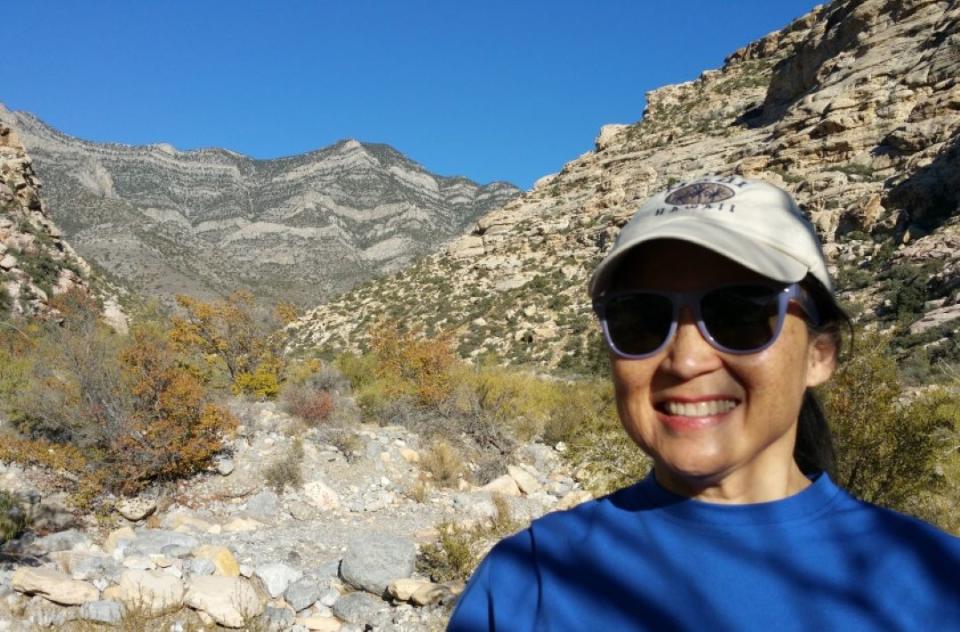
BERNIE CARR, 48, is a healthcare administration worker in Nevada and founder of Apartment Prepper, a blog about preparing for the worst if you live in a small space.
It all started in 2008 when Hurricane Ike happened in Houston. We had just moved to Texas, and I had never experienced a hurricane before. We did have a couple days’ worth of food at home, but right before it was scheduled to make landfall, I thought I should pick up a few things. I stopped by the supermarket, and everything was cleaned out except for one roll of toilet paper. I was not prepared at all.
After the hurricane passed, when it was safe to go out, we decided to venture to the grocery store, and the next shocker hit me: There was a line to get into the store. By the time I got in, there was nothing on the shelf. And that’s when I just thought to myself that this is crazy. I can’t be without supplies again.
I live in a small space, so I don’t have a year’s worth of stuff. I would say a month to six weeks. And now I always keep a month’s worth of toilet paper. When I started hearing the news reports from Wuhan, China, I thought, ‘Well, this could be a thing.’ We did do a quick run to Costco, but it was just a regular grocery run. Because when you prep, you get a small amount of items every time you shop. And that goes into stockpiles. Even if you put aside $5 a week to buy a pack of batteries, or a couple of gallons of bottled water, or an extra pack of toilet paper, then that avoids you panicking.
Right now, I would advise everyone to remain calm. You make better decisions when you’re calm. People don’t want to think about disasters and bad things happening. You don’t want to think about a pandemic. But there’s also a lot of practical things that you want to prepare for. I’ve gotten laid off several times over several years. One time I got laid off two years in a row. Having supplies at home kind of insures against everyday things as well, not just big pandemics and disasters or hurricanes.
You get car insurance just in case something happens, but you hope you never use it. Prepping is a form of insurance.
Bernie’s Tips
Start with a two-week stock. For people who don’t have a lot of storage space, get food supplies that would last two weeks to a month, so you don’t have to go to the store on a weekly basis, and so you can do your social distancing.
Buy food that your family would normally eat. Don’t go out and panic-buy tuna and learn to eat tuna. Pick up prescriptions and try to have a month or two in reserve. Remember your pets. They’re going to need food and care as well.
Get a first-aid kit. This way you can treat minor cuts and minor injuries at home and not have to go to the emergency room. And get a first aid app for your phone in case you need instructions.
You Might Also Like


